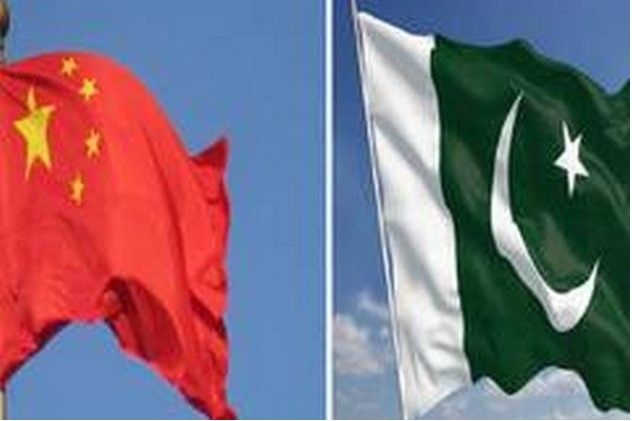China pushes Gulf nations to deport Baloch activists to Pakistan: Report

China is said to be putting pressure on UAE and other Gulf states to deport Baloch activists to Pakistan.
The deportations are linked to China’s investment in Gwadar port and other areas of Balochistan. It is a tight rope walk for the Chinese though
as Pakistan is witnessing mounting separatist attacks on Chinese ventures and Chinese personnel.
There have been a series of attacks on Chinese in Pakistan in the past with the most recent one on September 28 which led to the targeted killing of a Chinese Pakistani dentist in Karachi. The suspect escaped from the scene. Those killed and injured were identified as Ronald Chow, Richard Hu, 74, and his wife Margaret, 72.
Apart from the Baloch separatists, there is now an emergence of a new militant group in Pakistan which goes by the name Sindhudesh People’s Army from Pakistan’s southern Sindh province.
“We have substantial evidence Beijing continuously pushes the Gulf states, including the United Arab Emirates, to hand over to Pakistan Baloch activists it considers are opposing Chinese investment,” Abdullah Abbas, information secretary of the independent Human Rights Council of Balochistan, was quoted as saying in media dispatches.
Such deportations from the Gulf are not new to Baloch activists.
Following an attack on the Chinese consulate in Karachi in 2018, the United Arab Emirates deported Rashid Hussain, a Baloch activist, to Pakistan.
This February, a cousin of Hussain was arrested by Emirati intelligence and forcefully deported to Pakistan under the same circumstances, reports said.
.
Baloch militants have recently ramped up attacks and suicide bombings on Pakistani law enforcement agencies and Chinese installations inside and outside the Balochistan region.
According to a report, these separatists are now choosing soft targets instead of high-ranking Chinese officials because of the increased security.
Not much is known about Sindhudesh People’s Army but local journalists opine that it could be behind attacks on Chinese nationals in Karachi.
“We warn China to stop its exploitative projects on our homeland and leave immediately,” Sindhudesh People’s Army said in a statement
Apart from the Karachi Consulate attack in November 2018 and the April suicide bombing on Confucius Institute, there had been low-scale targeted attacks on Chinese nationals. Militants with such low-scale attacks have been receiving widespread media attention globally.
.
China had already grown concerned about the near misses at the consulate in Karachi and the attack in Quetta. Still, the Dasu attack last July in which 9 Chinese were killed really crossed a threshold – a major loss of life on a protected project – and the Confucius Institute attack reinforced that, even if it was different groups involved in the different cases.
The concern on China’s part is that the protection measures no longer seem to be working as well,
In a sign of mistrust between the two iron friends, Chinese economic engagement with Pakistan has decreased, and the work on CPEC slowed down.
And the Chinese envoy to Pakistan, Nong Rong, has held a series of one-to-one meetings with Baloch politicians. Baloch nationalists’ grievances vis-à-vis China are reported to have been discussed at these meetings held in Islamabad###.
-
Book Shelf
-
 Book Review
DESTINY OF A DYSFUNCTIONAL NUCLEAR STATE
Book Review
DESTINY OF A DYSFUNCTIONAL NUCLEAR STATE
- Book ReviewChina FO Presser Where is the fountainhead of jihad?
- Book ReviewNews Pak Syndrome bedevils Indo-Bangla ties
- Book Review Understanding Vedic Equality….: Book Review
- Book Review Buddhism Made Easy: Book Review
- Book ReviewNews Elegant Summary Of Krishnamurti’s teachings
- Book Review Review: Perspectives: The Timeless Way of Wisdom
- Book ReviewNews Rituals too a world of Rhythm
- Book Review Marx After Marxism
- Book Review John Updike’s Terrorist – a review
-
-
Recent Top Post
- NewsTop Story Record Pentagon spending bill and America’s hidden nuclear rearmament
-
 NewsTop Story
Taliban Suffers Devastating Blow With Killing Of Minister
NewsTop Story
Taliban Suffers Devastating Blow With Killing Of Minister
-
 China NewsCommentaries
Reality Shadow over Sino-American ties
China NewsCommentaries
Reality Shadow over Sino-American ties
-
 CommentariesNews
Ides of trade between India and Pakistan
CommentariesNews
Ides of trade between India and Pakistan
-
 CommentariesTop Story
Palestinians at the cross- roads
CommentariesTop Story
Palestinians at the cross- roads
-
 CommentariesTop Story
While Modi professes concern for the jobless, “his government’s budget escalates class war”
CommentariesTop Story
While Modi professes concern for the jobless, “his government’s budget escalates class war”
-
 CommentariesNews
Politics of Mayhem: Narrative Slipping from Modi ….?
CommentariesNews
Politics of Mayhem: Narrative Slipping from Modi ….?
-
 Commentaries
Impasse over BRI Projects in Nepal
Commentaries
Impasse over BRI Projects in Nepal
-
 CommentariesNews
Yet another Musical Chairs in Kathmandu
CommentariesNews
Yet another Musical Chairs in Kathmandu
-
 CommentariesTop Story
Spurt in Anti-India Activities in Canada
CommentariesTop Story
Spurt in Anti-India Activities in Canada
AdSense code



















